Behind the News
Behind the News: All the backstory to our major news this week
Published
1 year agoon

In the past one week, there were lots of important stories from around the African continent and we served you some of the most topical ones.
Here is a rundown of the backstory of some of the biggest stories in Africa that we reported during the week.
Nigeria commissions 650,000 bpd Refinery
On Monday, Nigeria’s president, Muhammadu Buhari commissioned 650,000 barrels per day (BPD) integrated Dangote refinery project which is the largest single-train refinery in the world, and the largest oil refinery in Africa, in Lagos, the country’s commercial capital.
The 1,100 kilometers refinery, built to handle 3 Billion Standard Cubic Foot of gas per day, is located on a 6,180-acre (2,500-hectare) location in the Lekki Free Zone of the state.
About 650,000 barrels of crude oil per day from the Niger Delta oil reserves would be transferred through a pipeline to the Dangote refinery site for operations. The refinery is projected to meet 100% of the Nigerian oil demands and surplus for export.
According to Nigeria’s Central Bank Governor, Godwin Emefiele, the refinery is expected to generate 12,000 megawatts of electricity and over 135,000 permanent jobs. It will also save Nigeria $25b, and $30b forex annually.
Nigeria’s public refineries have been virtually in comatose for many years now, making the crude-endowed country rely on imported refined petroleum.
This situation has put a serious strain on the country’s forex reserves, drained its earnings through subsidies, and occasioned supply disruptions.
Congo DR drags Rwanda to ICC
The diplomatic row between East African neighbours, the Democratic Republic of Congo and Rwanda got to a new height as Kinshasa filed a complaint against Kigali at the office of the Prosecutor of the International Criminal Court (ICC), the Hague, Netherlands on Tuesday.
Rwanda has been consistently accused of supporting the armed group, leading to diplomatic tension between the East African neighbours.
Congo DR wants the ICC to investigate and prosecute any person involved in human rights violations between 2022 and 2023. Meanwhile, the ICC has been investigating eastern DRC since 2004 and it is unclear if the new prayer would shift the court’s focus.
According to a 2022 report by Human Right Watch, resurgent M23 rebels, backed by Rwanda, launched their biggest offensive against state forces in a decade, seizing portions of territory in North Kivu, which worsened the dire humanitarian situation in the region.
Uganda to export nurses to UK
In what seems like a twist to a menace of brain drain which many African countries have complained about, a Ugandan professional body, Uganda Nurses and Midwives Union (UNMU) has said plans are in place to send some of its members abroad.
President of UNMU, Justus Cherop revealed that about 3,000 well-skilled nurses who were not employed by the government already work abroad, as plans by some labour groups in the country to send nurses to work in the United Kingdom and the Middle East continue.
“We have about 5,000 nurses graduating from institutions and universities every year. The government can absorb around 2,000 every financial year,” Cherop said.
He hinted that the country currently has 62,000 qualified nurses and midwives which is more than the 55,000 nurses needed. He claimed that only 28,000 nurses are currently employed by the Ugandan government.
United Kingdom stops migration of foreign student families
The United Kingdom is set to announce a policy to restrict foreign students from bringing family members into the country. Under the policy, foreign students would have to obtain a work visa by getting a skilled job or leave the UK within six months after the end of their studies.
Beyond the student and family travel, the British government is also concerned about the number of illegal migrants to its territory which resulted in a £148 million agreement to deport thousands of refugees to Rwanda last year.
According to the government, the size of the foreign-born population in the UK increased from about 5.3 million in 2004 to over 9.5 million in 2021. A large percentage of the foreign-born population, most of whom are Africans, migrated as families and dependants of students in varsities.
Armed conflict continues in South Sudan
The violent clash between the Sudanese army and fighters of the Rapid Support Force (RSF) paramilitary has continued in the East African country.
The Sudanese army on Friday called on retired soldiers and reservists to re-enlist in the army to swell its ranks as fierce fighting continues.
International bodies like the African Union (AU) and the United Nations have all attempted to broker a truce between the rivalling forces but none has been successful as the warring factions continued to engage in fierce battles, especially in Khartoum and Darfur.
The conflict had led to a difficult humanitarian situation in Sudan. According to Reliefweb, currently, over 11 million people can barely meet the minimum food requirements. Close to four million children under the age of five, as well as pregnant and lactating women (PLW), are acutely malnourished. Drought, floods, and disease outbreaks have contributed to the worsening humanitarian situation.
You may like
-


Economic policies must be local, By Lekan Sote
-
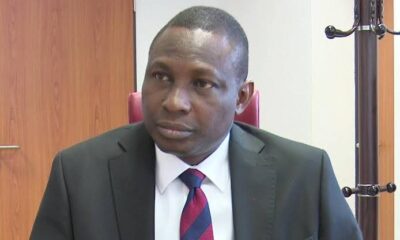

Nigeria: EFCC says country loses $500m to cybercrime annually
-


In 6 months, Nigerians spent over $2.38 million on medical tourism
-
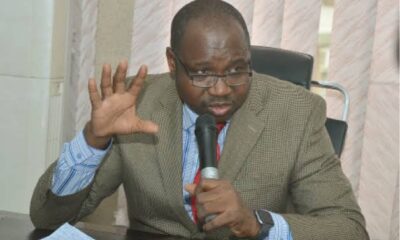

Nigeria confirms supplying 24-hr power to Togo, Benin, Niger
-


Nigerian govt imposes 5% tax on telecom, betting services
-
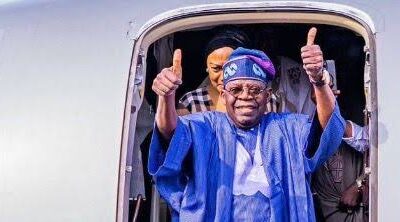

Nigerians will begin to see the fruits of Tinubu’s labour— CoS Gbajabiamila
Behind the News
Behind the News: All the backstories to our major news this week
Published
6 days agoon
October 18, 2024
Over the past week, many important stories from around the African continent were published, and we served you some of the most topical ones.
Here is a rundown of the backstories to some of the biggest news in Africa that we covered during the week:
Another look at Africa’s debt crisis
Conversations around Africa’s public debt were on the table during the week as Achim Steiner, administrator of the United Nations Development Programme, stated on Monday that the world’s poorest countries were unable to meet sustainable development targets because they had to prioritise debt payments over investments.
Addressing a gathering in Hamburg, Steiner asserted that the world financial crisis was impeding countries’ ability to accomplish the objectives, which include eradicating hunger and poverty, increasing access to healthcare and education, providing sustainable energy, and protecting biodiversity.
Since the COVID-19 pandemic’s pervasive effects on economies, the majority of the continent’s nations have suffered with both internal and international debt; yet, few have achieved much in the fight for debt restructuring under the G20 framework.
Numerous African nations, including Egypt, Tunisia, Nigeria, Ghana, Zambia, and others, are struggling with significant foreign debt. Together with Zambia and Ghana, Ethiopia will be a part of a thorough restructuring known as the “Common Framework.”
At the opening ceremony of the annual African Union summit in Ethiopia last year, UN Secretary-General Antonio Guterres made the case for changes to the international financial system’s structure to better meet the requirements of developing nations.
Africa’s whole external governmental debt as of 2021 was 726.55 billion USD. The amount of foreign public debt increased from 696.69 billion dollars in comparison to the previous year.
Concerns are being raised by the rising debt levels in Africa, which could not only hinder economic growth but also make repayment nearly difficult for many of these nations. This begs an important question: When does debt stop being beneficial and instead start to negatively impact a nation’s economic performance?
Kenya remains committed to Haiti, but what does it stand to gain?
Kenya will support an international anti-gang effort in Haiti next month by dispatching an additional 600 police officers there. Haiti’s prime minister was in Kenya to expedite the deployment of the military.
At least eleven countries have pledged to send more than 2,900 soldiers to participate in the Multinational Security Support (MSS), led by Kenya.
Kenya, whose participation in international peacekeeping missions is longstanding, declared earlier this year that it would be deploying 1,000 police personnel, citing as a starting point its assistance to a bordering country.
Approximately 600,000 individuals have been internally displaced due to gang conflict, and hundreds of thousands of aspiring migrants have been deported back to Haiti, where approximately 5 million people are facing extreme famine. October marks the end of the mission’s first 12-month term. As gang violence worsened in 2022, Haiti turned for the first time to foreign assistance.
Nevertheless, it failed to identify a leader prepared to assume the helm and numerous foreign governments were reluctant to back the unelected administration in the desperately poor nation.
Kenya gains significant political value by sending its troops to Haiti on the international scene. Kenya has gained international recognition as a trustworthy ally that is eager to assist other nations. The mission opens up various opportunities. Prior to deployment, Kenyan law enforcement forces will receive specialist training and equipment. In the long term, this will increase the force’s capacity. Of course, there are monetary rewards as the participating nations receive allocations of resources. Because troops will receive additional pay, officers are very interested in being deployed overseas.
Cameroon: ‘Healthy’ Biya remains out of sight
Cameroon’s president, Paul Biya can now be likened to the proverbial cat with nine lives as the 91-year-old has remained “healthy” following latest reports of his death during the week. Rumours have been circulating about Cameroonian President Paul Biya’s possible death in a military hospital in France due to his extended absence. This rumour stems from Biya’s prolonged absence following the September China-Africa Summit when he was anticipated to head back to Cameroon almost away.
As of November 6, 1982, Biya, who is 91 years old, has been in office for 42 years. He is the oldest head of state in Africa, the longest-lasting non-royal national leader worldwide, and the second-longest serving president overall. According to rumours, Biya’s oldest son Franck Emmanuel Biya may be named as his replacement for “continuity” in France.
Since its political independence from France and Britain in the early 1960s, Cameroon has only had two presidents. The country is currently dealing with two serious crises: a deadly Boko Haram insurgency in the north and a separatist conflict that has claimed thousands of lives.
President Biya is one of several long-serving African leaders, including Yoweri Museveni of Uganda, who has been in office since 1982, and Teodoro Obiang Nguema Mbasogo of Equatorial Guinea, Rwanda’s Paul Kagame is also gradually evolving into the group.
Things get tougher for embattled Kenyan Deputy President
During the week, the deputy president of Kenya was impeached by the National Assembly due to charges of corruption and abuse of power. In a vote held Tuesday night, lawmakers decisively decided to remove Rigathi Gachagua from office. The Senate will now decide what will happen to the deputy president.
Parliament adopted a proposal to remove Kenya’s deputy president from office, and on Wednesday, the matter was brought to the Senate for consideration. The National Assembly heard a nearly ninety-minute defence of troubled deputy president Rigathi Gachagua and his allies prior to the vote.
A surge of protests targeting President Ruto’s government has been occurring in Kenya over the last four months due to accusations of corruption made by certain lawmakers and government officials. High taxation and the parliament’s purported inability to act independently of the president were other issues that Kenyans objected to. Gachagua refutes the accusations made by certain lawmakers, who claim that the deputy president assisted in planning rallies against the government.
He supported Ruto in his election victory in 2022 and assisted in obtaining a sizable portion of the vote from the populated central Kenya region. Gachagua, however, has mentioned feeling marginalised in recent months, despite extensive claims in the local media that he and Ruto have strained political ties.
After widespread protests over unpopular tax increases in June and July that claimed more than 50 lives, Ruto sacked the majority of his cabinet and appointed members of the main opposition.
Gachagua infuriated many in Ruto’s coalition by comparing the government to a business and implying that people who supported the coalition had first claim to development projects and jobs in the public sector. Ruto has not yet publicly commented on the impeachment proceedings.
Behind the News
Behind the News: All the backstories to our major news this week
Published
3 weeks agoon
October 3, 2024
Over the past week, many important stories from around the African continent have been published, and we have served you some of the most topical ones.
Here is a rundown of the backstories of some of the biggest news in Africa that we covered during the week:
Musings on CBN rates across Africa: Ghana, Nigeria, and South Africa
During the week, many African countries announced monetary policy decisions. The Central Bank of Nigeria decided unanimously on Tuesday to raise its benchmark interest rate by an additional 50 basis points, to a new record high of 27.25%. This is the sixth hike in a row this year. The decision was made in an effort to reduce inflation, strengthen the naira, and draw in capital. Governor Olayemi Cardoso reaffirmed the bank’s commitment to controlling inflation and underlined how several rate hikes have contributed to its moderation.
Nigeria’s West Africa neighbour followed suit on Friday as the Bank of Ghana reduced its benchmark monetary policy rate by 200 points to 27% at a normal meeting. With inflation having slowed and disinflationary pressures mounting, this is the first decline in eight months and the steepest since March 2018. August 2024 saw a fifth consecutive month of decline in Ghana’s annual consumer inflation, which was still much higher than the central bank’s medium-term target range of 6% to 10%. The country’s annual inflation rate dropped to a nearly two-and-a-half-year low of 20.4% from 20.9% in July.
A week prior, as anticipated, the South African Reserve Bank decreased its benchmark interest rate by 25 basis points to 8% after holding seven consecutive meetings at a 15-year high of 8.25%. As price pressures decreased, the SARB is loosening policy for the first time since the epidemic in 2020
As monetary varying shifts across the continent continue, African nations are still facing numerous severe shocks and significant structural challenges, such as rising food and energy prices brought on by geopolitical tensions like Russia’s invasion of Ukraine, climate issues that impact agriculture and energy production, and ongoing political instability.
Africa’s real GDP growth slowed to 3.1% in 2023 from 4.1% in 2022 as a result of this difficult climate. With growth predicted to reach 3.7% in 2024 and 4.3% in 2025, the economic picture is projected to improve going ahead, underscoring the resilience of African countries.
Zambia and its post-drought plans
Zambia’s finance minister, Situmbeko Musokotwane stated on Friday that the nation intends to quickly recover from its worst drought in living memory and cut its budget deficit in half the following year.
The minister stated in a budget address that the copper producer hopes for a 6.6% growth in 2025, as opposed to a projected 2.3% increase in 2024. The country is aiming for a speedy recovery. as the government crop assessment data shows that over nine million people are affected in 84 of the 117 districts after suffering through the driest farming season in over forty years, which has led to considerable crop losses, an increase in livestock deaths, and worsening poverty,
Real GDP increased gradually between 2022 and 2023, from 5.2% to 5.8%. The supply side was driven by mining and quarrying, wholesale and retail commerce, and agriculture; the demand side was driven by consumer and business spending. Food prices, transit expenses, and the nominal exchange rate are the key drivers of inflation, which is expected to remain elevated and reach 11.0% and 10.9% at the end of 2022 and 2023, respectively.
The economic challenges faced by Zambia are exacerbated by the drought, especially when considering its debt load. Its debt restructuring talks under the G20 Common Framework have progressed far more slowly than was originally anticipated when the Common Framework was first proposed.
In 2017, Zambia was placed under debt distress, and as a result, non-concessional lending from multilateral development banks was discontinued. It’s possible that by overestimating sovereign risks, the main credit rating firms exacerbated the debt crisis and dealing with a post-drought crisis might just be another “too high hurdle”
As the World Bank and Uganda LGBTQ saga continues
The World Bank is taking more action in support of Uganda’s LGBTQ community. The global lender announced on Wednesday that it is implementing steps to guarantee that lenders to Uganda are not subjected to discrimination due to a severe anti-gay law. According to a World Bank representative, both new and continuing projects would be subject to the procedures, which also include an impartial monitoring system to guarantee compliance.
Same-sex partnerships are forbidden and punishable by life in prison; similarly, anyone convicted of “aggravated homosexuality” faces the death penalty. The Anti-Homosexuality Act (AHA) was passed by Uganda, a largely conservative nation, in May of last year and it has led to considerable Western censure and US penalties.
Other than Uganda, several African nations have strict laws that discriminate against individuals who identify as LGBTQ. Hakainde Hichilema, the president of Zambia, issued a warning in March to supporters of the LGBTQ movement to stop endorsing homosexuality. He also asked that Zambia “maintain laws that abhor alien orientations like gayism and lesbianism.”
South Africa, which has a constitution that forbids discrimination based on sexual orientation, was the first and only African nation to legalise same-sex marriage in 2006. Some African nations, such as Angola, Mozambique, Botswana, Lesotho, Mauritius, and Seychelles, have laws that are favourable to the continent’s population but Uganda appears to be unbothered or tempted despite the many causes and costs of its anti-gay stand.
Ahead of Tunisia’s presidential election
During the week, another Tunisian presidential candidate Ayachi Zammel was convicted and sentenced to six months imprisonment for using “fraudulent certificates” as opposition voices in the North African country continue on attack as President Saied positions himself for what is likely to be a reelection, as all but one of the opposition candidates are either incarcerated or have had their eligibility ruled invalid by the Tunisian electoral commission.
On September 19, a third candidate who had received the election commission’s approval was sentenced to 20 months in prison. Saied, who is currently running for reelection for a second five-year term, was originally elected in 2019 as an anti-establishment candidate who pledged to combat poverty and eradicate corruption. However, in 2021 he declared that he would rule by decree after overthrowing Mohamed Ennaceur and the elected parliament, a move denounced as a coup by the opposition and the international community.
Additionally, he has deployed more oppressive strategies, which may indicate that he is not confident in his ability to win with conviction. His severe actions could indicate a new stage in Tunisia’s democratic backsliding and foreshadow more crackdowns and turmoil during an inevitable second term.
Meanwhile, concerns exist over potential voting turnout as well. Under Saied, Tunisia has conducted three elections, with dismal voter turnout in each. Less than one-third of voters cast ballots in favour of a new constitution that solidified Saied’s power and overthrew the 2014 charter in July 2022. After Saied dismissed the previous legislature in December 2022, only 11% of voters cast ballots for new members of parliament, which is among the lowest turnout percentages ever recorded in a national election worldwide. The next December, Saied called elections for a new second house of parliament, repeating this dubious performance.
EDITOR’S PICK
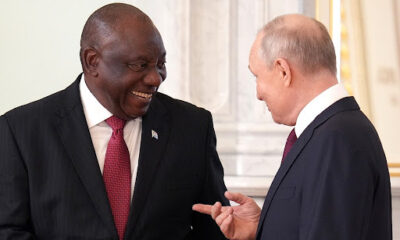

South Africa: Russia remains a valued ally, Ramaphosa tells Putin
At a bilateral meeting with Russian President, Vladimir Putin, on Tuesday, the eve of the BRICS summit of developing economies...
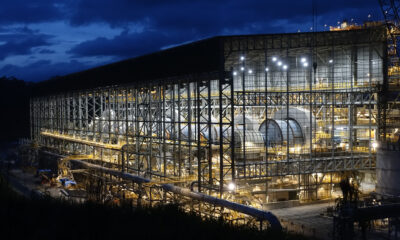

Canada’s First Quantum in pursuit of partners for Zambian assets
Without naming the companies, First Quantum Minerals, a Canadian miner, stated on Wednesday that it is in discussions with possible...


US requests probe into murders of two Mozambique opposition figures
The United States administration denounced the weekend deaths of two Mozambique opposition members, demanding a prompt and comprehensive inquiry ahead...


Economic policies must be local, By Lekan Sote
With 32.70 per cent headline inflation, 40.20 per cent food inflation, and bread inflation of 45 per cent, all caused...
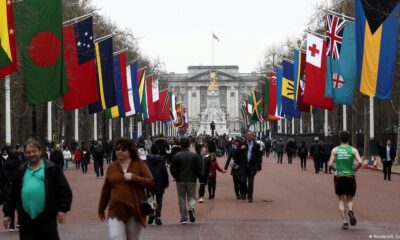

Britain says Commonwealth conference won’t discuss slavery reparations
Britain will not discuss reparations for historical transatlantic slavery at a Commonwealth conference that began in Samoa, but is open...
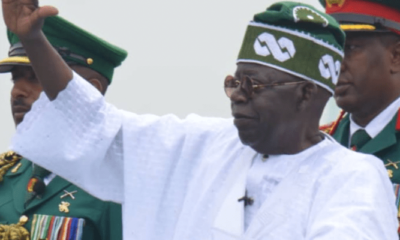

Nigeria’s Tinubu reshuffles cabinet
Following weeks of speculations around an imminent cabinet reshuffle in Nigeria, President Bola Tinubu on Wednesday dismissed six ministers from...
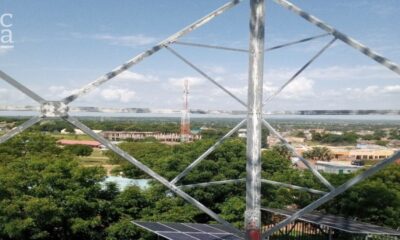

South Sudanese telcos increase tariffs as exchange rates soar
Telecommunication companies in South Sudan have been forced to increase their tariffs as a result of a hike in the...
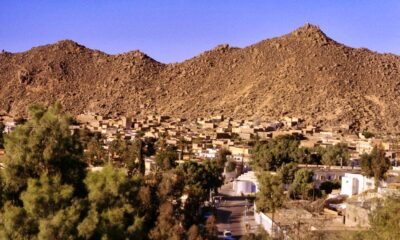

Two Algerians arrested over alleged murder of Swiss tourist
Algerian authorities have arrested two men in connection with the brutal murder of a Swiss tourist who was killed on...
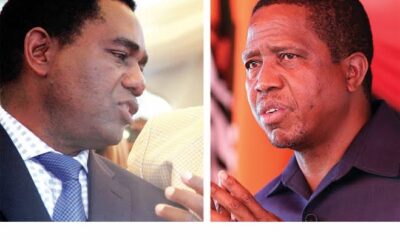

‘You’re better off in retirement, drinking in peace’, Zambian President taunts predecessor
Zambian President, Hakainde Hichilema, has told his predecessor, Edgar Lungu, that he should forget the presidency in 2026 as he...


Nigeria: EFCC says country loses $500m to cybercrime annually
Chairman of Nigeria’s anti-corruption agency, the Economic and Financial Crimes Commission (EFCC), Ola Olukoyede, says the country loses over $500...
Trending
-

 Metro1 day ago
Metro1 day agoNigeria: EFCC says country loses $500m to cybercrime annually
-

 Metro23 hours ago
Metro23 hours ago‘You’re better off in retirement, drinking in peace’, Zambian President taunts predecessor
-

 Tech23 hours ago
Tech23 hours agoSouth Sudanese telcos increase tariffs as exchange rates soar
-

 Culture23 hours ago
Culture23 hours agoTwo Algerians arrested over alleged murder of Swiss tourist


